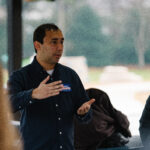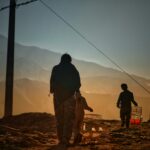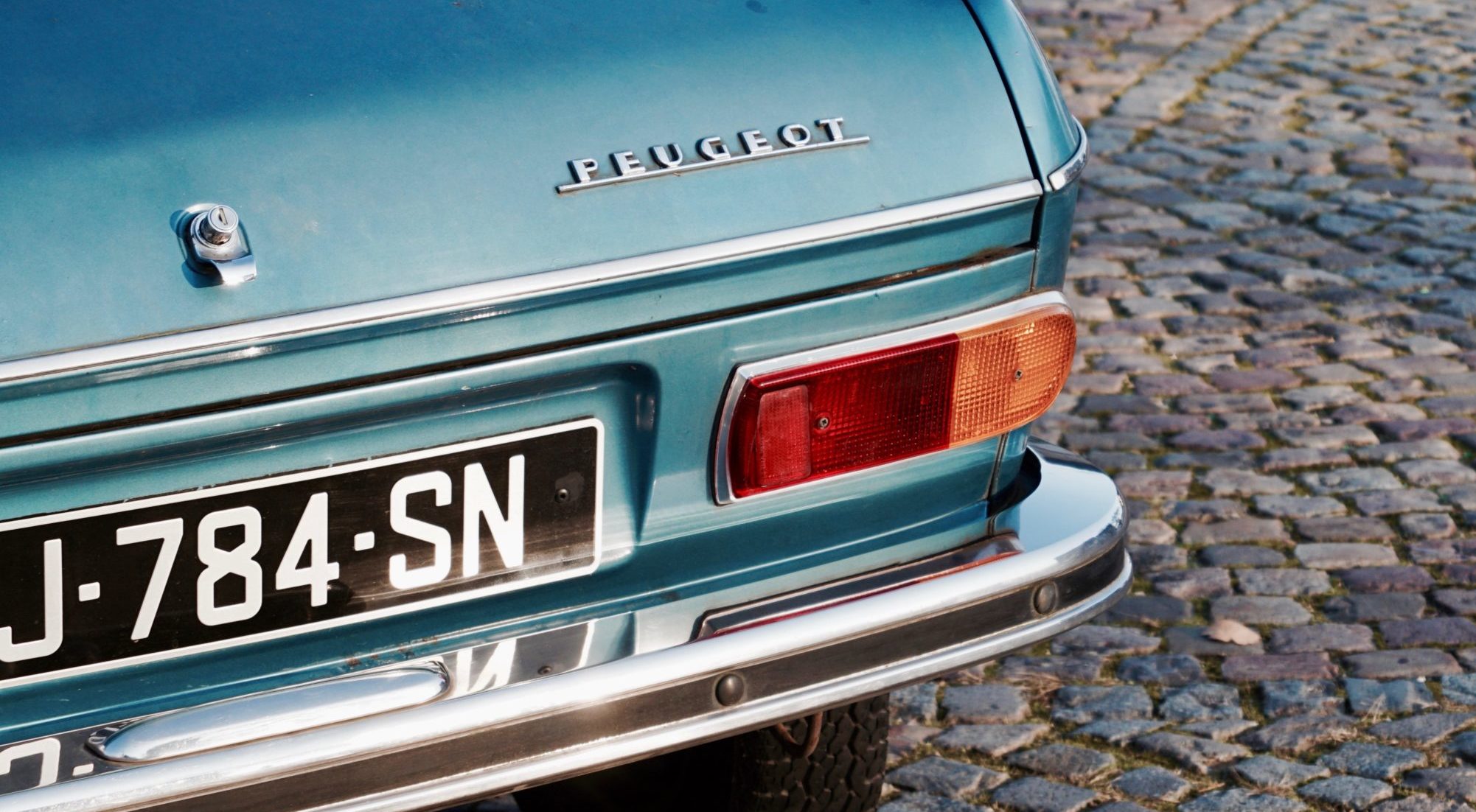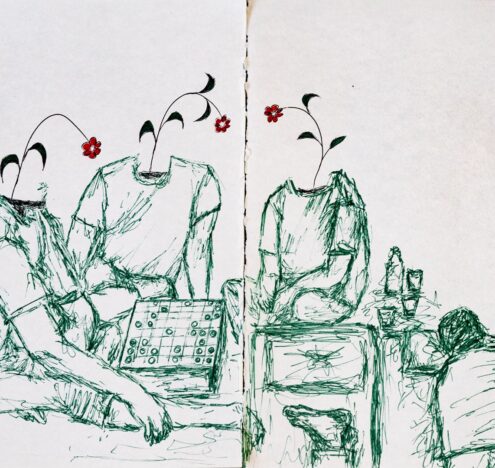The first hour of the interrogation was pleasant enough — as the first hour of interrogations go.
The cut of his stylish, two-tone velvet jacket had the telltale irregular tack of hand stitching with just enough crumbs to tell me I had unexpectedly interrupted a late lunch. The Saville Row double fold of his lapel paired nicely with the rehearsed, although sporadic, British lilt.
Northern England, perhaps? Probably not London and certainly not Oxford. I made a mental note to tease “Two-Tone” over dinner about his choice of velour wardrobe in the mid-day Tehran heat. I had no doubt Two-Tone would invite me to his home to meet his family just as soon as this little misunderstanding was cleared up. Just like everyone else in Iran invites me to their home. Just a matter of time, of course. What could go wrong?
I’ve met enough Revolutionary Guard intelligence officers (Two-Tone wasn’t one) to know the pecking order is virtually palpable. Subtle, yet unmistakable; visceral even. They are a breed apart.
Player three entered wearing a black baseball cap pulled low beyond any utility other than anonymity and the mood decidedly shifted. The crisp ‘click’ of his radio to “off” read “don’t bother me” and his swagger said, “this better be good.”
Two-tone made halting eye contact with me one last time and whispered, almost apologetically, “This guy is very dangerous.”
I was definitely not going to dinner.
I felt my blood drain as I watched the life I used to have flash by in a cascade of Polaroids. Black Hat absorbed every minute detail of a live “American-American” in the wild in real time via a really uncomfortable optic osmosis. “American-American” is how I’m known –“full” American, as in no Iranian mother or father.
Where in Evin prison would they put me? Milad Tower view or could I politely request the Mountain-view side? I’m from East Tennessee and, given a choice, I am partial to mountain views. Two years from now would it matter? When did I talk to my girlfriend last? How many IR-8 centrifuges is an American-American worth? Would anyone even notice that I was gone?
Any and all detail missed in real time would be preserved in living color; the IRGC photographer was clicking away like an over-eager intern at Fashion Week.
The heels of my new Cole Haan’s were, apparently, of interest as were the metal buttons on my suit jacket. All my trips to Afghanistan and my contact with the Sunni Northern Alliance and Ahmad Zia Massoud didn’t escape inspection either. In the preceding hours, I’d already had two progressively invasive pat downs and I was genuinely not looking forward sharing the rest of my real estate during a third.
I entered Iran with a single, holy-shit-get-me-out-right-now phone number. I gambled the other side of the line would be in the right time zone if I ever needed to use that lifeline. In fact, that singular contact was the only information of any kind I left the United States with. For me, wheels up that rainy night at JFK was effectively lights out.
Even so, I chided my own paranoia as I unwrapped and unlocked a new iPhone while punching out a rainbow deck of random SIM cards during a short layover in Istanbul. I carefully typed in my own version of a digital safe word and double-checked twice. I hit “save,” put my phone away, and handed over my passport.
Months later and a few hours into my conversation with Black Hat, the introvert in me decided I had enough of friendly chit-chat and the trader in me was willing to bet I had gambled right in Istanbul.
“Bia, agha… call this number…”
In under a minute, my passport, curious heels, metal buttons and I were collectively being escorted out of what is the single most politically sensitive area in Tehran. Black Hat took both my hands in his while still perched atop the shady side of the threshold and parted with this not-so-subtle nugget:
“Today… I don’t know how or why… or who you are… but somehow, God was on your side.”
I turned in what was probably an Oscar-worthy I-don’t-have-a-care-in-the-world casual stroll on what felt like the longest sidewalk in the world. The fading staccato of Friday prayers punching at my back were sharply pierced with way more references to “Ahm-ri-ka” than I thought possible within the short span of my Charlie Chaplin waddle to the corner.
I folded myself into the warm ensconce of anonymity at the nearest subway stop, took a deep breath, and tried not to vomit on the sidewalk.
Back at my Valenjak apartment, I convinced myself I was going to prison. I sat in the dark, alone, chain-smoking Iranian cigarettes (When in Iran, I like Bahmans, but normally I don’t smoke) and stuffed cash inside my “go bag” while doing the math on the Euros I’d stuffed inside the body panels of a rusty, used Peugeot I bought weeks earlier; parked, gassed, and ready to go for just such a neurotic episode. I basically dropped an unlocked lottery ticket on the streets of Tehran. To this day, I have no idea what happened to it.
Kabul is only 26 hours outside Tehran by route 44. I know from experience I can drive it in 23 hours if I need to. More importantly, I know where I can get a flight out if I can make it. If I’m flagged in Tehran, I know I’ll never get out. Worst-case scenario, Kohsan, Afghanistan is 12 hours away – a veritable lifetime in an emergency. If I can make it to Kohsan, I know I can buy myself another day or two of anonymity and, if my personal history is any guide, a day or two of anonymity is all I need to get myself out of a tough spot.
I aged a few years while all these scenarios bounced around my head, until I got a singular message from a cabinet-level Iranian friend who would know one way or the other if I were toast or not.
“You are fine. All good.”
Those that regularly travel off the beaten path or work on track two diplomacy will recognize the signs. The unwrapped, unlit cigar left in the hotel ashtray when you don’t smoke. The Blackberry moved to a different place than where you left it. Perhaps the battery was removed and placed perfectly on top as, I’m told, is a favorite in China.
For me, in Iran, it was the new profile set up on my iMac in my locked apartment. The message is universally clear: “Welcome, but don’t mess this up. Everyone is touchable.” I would be disappointed if our women and men don’t do the same.
We watch what we fear; what we don’t know or what we don’t understand. The curious, the new, the hated or the loved. Curiosity and examination rarely come from a place of casual interest. My little misunderstanding at Friday prayers was a perfect encapsulation of decades of mutual mistrust, pure and simple. Nothing more, nothing less. Nothing personal.
True rapprochement with Iran, not just a nuclear deal, is probably the single greatest foreign policy opportunity of my generation short of disarming North Korea. Demographics and a massive credit bubble will contain China for now, but the new Middle East is ours to lose.
This, I have learned from my time in Iran, is how we have lost it so far:
1. Iran and the United States must agree on a civilian envoy as soon as possible. I know for certain the Iranian government is, at least they have been in the past, open to this idea. There is a very real reason for this intermediate step: Iran will rarely trust dialogue from the Department of State because they equate that channel with American intelligence. Furthermore, it is in both American and Iranian interest to disconnect bilateral talks from the channel associated with the nuclear deal, because any concession within that channel will expect, rightfully so, to be met with reciprocal concessions on Iran’s nuclear program.
2. The damage the United States has self-inflicted by not understanding the nuance language can inflict is probably the most unfortunate reality of the last 30 years. This really cannot be overstated. Thinking and communicating from the viewpoint of Iran is the first place we should start. Alan Eyre is no longer vetting every message for nuance and context, and we are at a loss for that.
3. Iran generally does not believe viewpoints can be printed or broadcast without at least tacit approval from the White House. Backchannels can be complicated too. Ahmadinejad, despite his fiery rhetoric, tried every way possible to reach the US but created confusion because we never knew which channel the Supreme Leader backed.
4. Domestic pressure can, and does, weigh on the foreign policy choices of the Iranian Government and that happens most directly through the Supreme National Security Council (SNSC). In only a handful of times has the Supreme Leader chosen a course of action not advised by the Supreme National Security Council. Most notably, when the SNSC recommended an invasion of Afghanistan. Despite the recommendation, Khamenei chose not to invade.
5. The Iranian government is a pragmatic and rational actor if, and only if, we consider their rulebook. If the time is taken to understand the way Iranians misinterpret our actions and we further recognize our own fault in misanalysing their behavior; we can change the history of blind accusations that wildly distort reality and Iran’s actual geopolitical aims.
6. Iran is a deeply conspiratorial culture. This goes fist in glove with the concept of never, under any circumstances, bowing to pressure. When faced with threats and coercion, it is national pride that increasingly determines Iran’s foreign policy choices at the expense of what may be domestically rational or beneficial in the near term. This supersedes the western assumption that even more sanctions can alter behavior. This includes America’s “all options on the table” rhetoric and the threat of total nuclear annihilation. From this view, it was a perfectly rational choice to send middle schoolers to fight the existential threat of Saddam Hussein’s invasion. What seems illogical or inconsistent behavior from Washington is assumed to be aimed at toppling the Islamic Republic. No other explanation is sought or even considered.
7. US accusations of human rights violations are not understood in Iran and are often grossly counter-productive. The number of Americans that are killed by police, the gap between those that go to bed hungry in such a rich country as ours, and the number of OxyContin overdoses along with a campus sexual assault epidemic are far worse human rights violations. Don’t think Iranians pay attention to these issues? They do. Probably even more than you. This is not to say our claims of human rights violations are unfounded, but rather to state that by understanding how our claim is understood, we can use other tools to affect the desired rights outcomes while maintaining our core values.
8. The United States’ relationship with the Supreme Leader will never be restored and there will never be an opportunity to repair state level relations with Iran in my lifetime. A nuclear deal should not be mistaken for rapprochement or a repair in relations. Any diplomatic progress will continue to be made only in the context of mutual benefit. Claiming that Iran is non-compliant with the nuclear deal when they actually are in compliance is not only an absurd violation of international norms, but further weakens the United States’ capacity to lead.
9. Saudi Arabia is not a friend of the United States. Strategically, within the scope of the next 300 years, Wahhabism will occupy the same dustbin of history as The National Socialist movement. Shi’ism will one day be as close to the US as the UK “special relationship” is now. I know I will never live to see it, but that’s OK. I’m confident enough in that geopolitical calculus to rest easy because, ultimately, I already know the outcome.
10. “All options are on the table” and “Death to America” are equally divisive. If my experience tells me anything; it is that our misunderstanding is first rooted in language. It’s time for the rhetoric to change. The real question is who will lead first.
Am I going back to Iran? I hope I am allowed back soon and I wouldn’t miss it for the world. I’ve never felt more at home anywhere other than Iran. I bet I’ll even get that dinner with “Two-Tone” one night. Who knows; I might even invite Black Hat.
Maybe he’ll bring my Peugeot.
Christian Cooper is a Truman National Security Fellow and former Term Member at the Council on Foreign Relations.





















